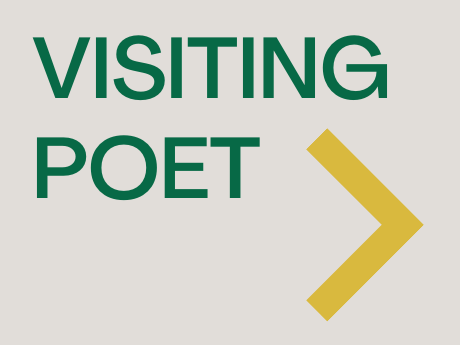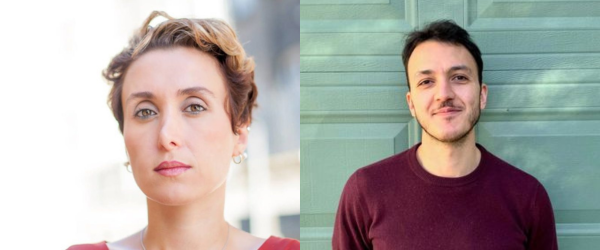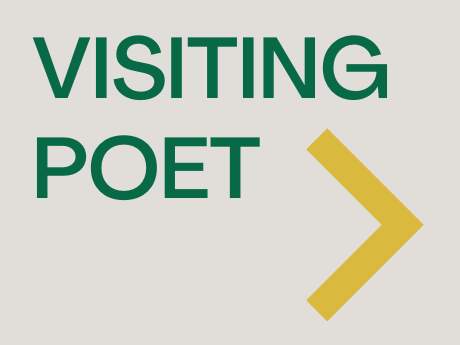Visiting Poet
Visiting Poet: Armen Davoudian on Fatemeh Shams

Five Poems
Headscarf
Around our throats tight like a chain — this headscarf;
in our hands loaded like a gun — this headscarf.
Each strand of our hair can stoke a revolution;
burn the symbol of our pain — this headscarf.
It isn’t Islam but a fabrication,
lies and an empty refrain — this headscarf.
Deprivation and dependency,
soul’s opiate, it rots the brain — this headscarf.
We stand by our sister’s blood; a battle-flag
lifted against her killers’ reign — this headscarf.
W for War
I wasn’t a helmet
I wasn’t a boot
I wasn’t a bullet
I wasn’t a tank
I wasn’t a commander
I wasn’t a private
a minefield, barbed wire
I wasn’t a fort
I was a piece of a photograph
in the left breast pocket
over the warm blood
of a soldier’s burst heart.
This Is Not a Poem
It’s a fistful of blood, splattered
on mute papers on the capital’s newsstands.
It’s a kind of throwing
the sudden throwing of rebel girls from the roofs of the side-streets of Revolution.
This is not a poem
it’s the forced confession of an eyewitness
her tongue worn down by the narration of successive shots.
A fat worm crawls through this poem
and swallows the termites from the faces of words
tortured words buried under a bloody heap.
This is not a poem
it’s the guts of a ten-year-old who dreamt of inventing the Rainbow God one day
it’s a chain of tattered bodies throbbing in nameless graves
cut hairs
scratched cheeks.
When midnight strikes the words will begin to violate each other
they will draw guns on each other
tenses present and past will be taken hostage
bullets will mark the confusion of adverbs of time and space.
This is not a poem
it’s the wounded body of a fifteen-year-old festering from successive rapes
it’s the severed head of a singing girl whose words were crushed in her throat
it’s the mauled chest of a captive laborer who laughed at his torturer till the last blow
This is not a poem
it’s the story of a murderer who brings home fresh bread every night with the blood money of rebel poets
Before sunrise the corpse of these words will be on the hands of these white pages
one by one they will fall into eternal sleep with fattened insects in a mass grave
This is not a poem
for weeks words have been hung up by their feet
the hands of light and metaphor chained to iron fences
and water denied to the dry throat of song … and denied … and denied
like us these words were unarmed
and their fists were full of stones
and their bodies naked as the day they were born from the womb of the mother tongue
This is not a poem that runs in my mouth
it’s the convulsions of a tortured order that runs wounded and naked in the streets
and falls to the ground at the newsstands.
Poem and Stone
The fragment of a dead volcano in my pocket
I walk to the end of endless frost.
Yesterday, a hand in my hand
but today only the struggle
of a tongue at the end of my fingertips
talking to stone.
In the distance, smoke rises and settles.
Ember under ash
a volcano speaking in the mouth
a molten current of words
a brilliant hell —
that is poetry
scratching, immortalizing
the frigid face
of bottomless exile.
Tonguelessness
I’ve brought a mirror to see which of us is more dead.
Let’s speak in words that are past their expiration date
in tongues that are each more foreign, more eloquent than the other.
I’ve brought a mirror to breathe on and check if we’re alive.
Let’s speak in the seasick accents that we know
about forgotten names
in tongues that we don’t know.
I’ve brought a mirror to see in what tongue, at what time each of us drowned.
We are the shadows on the ocean floor
turning a mirror on our own tonguelessness.
Over the waters we crossed
and to the waters we shall return.
Translated from the Persian by Armen Davoudian
Reprinted with the permission of the translator. All rights reserved.
Armen Davoudian on Fatemeh Shams
One of my favorite poems by Fatemeh Shams pits the power of the word against the sword. The speaker of “W for War” is not a tank, a bullet, or any other implement of war. It is, instead,
a piece of a photograph
in the left breast pocket
over the warm blood
of a soldier’s burst heart.
Like a photograph in a breast pocket, the poet’s task is to witness and record, close from the heart. A portrait of the soldier’s loved ones, a partner, or a family member, the photograph does not exactly represent or depict war, and yet it is undeniably affected by war. Born in Mashhad, Iran, and currently living in exile in the US, Shams is not a poet to shy away from direct political statement. Many of her poems engage the political sphere in the manner of this war-torn photograph. War, women’s rights, exile: to find purchase on issues of such scale, one clings to specifics, and Shams’s poems zoom in (like a camera) on exactly those moments when the political and public sphere transgresses, often violently, upon private life.
Always stylistically heterogeneous, Shams’s work ranges from classical ghazals to politically charged free verse to surrealist prose poems, and she has continued to expand her poetics in exile: her poems written in the wake of the Woman, Life, Freedom movement in Iran engage in the tones and means of direct witness, while other poems reach for more experimental styles whose tentativeness and brokenness reflect her sense of linguistic loss, caught between two worlds and belonging to neither.

Fatemeh Shams is the author of two books of poetry in Persian, the first of which won the Jaleh Esfahani Award for the best young Iranian poet in 2012, and a critical monograph in English on poetry and politics, A Revolution in Rhyme (Oxford UP). When They Broke Down the Door (Mage), a collection of her poems translated by Dick Davis, won the 2016 Latifeh Yarshater Award from the Association for Iranian Studies. Her poetry has been featured in Poetry magazine, PBS NewsHour, and the Penguin Book of Feminist Writing, among other venues. She is associate professor of Persian Literature at the University of Pennsylvania.
Armen Davoudian is the author of The Palace of Forty Pillars, forthcoming from Tin House in Winter 2024. His poems and translations from Persian appear in Poetry magazine, the Hopkins Review, the Yale Review, and elsewhere. His chapbook, Swan Song, won the 2020 Frost Place Competition. Armen grew up in Isfahan, Iran, and is a PhD candidate in English at Stanford University.

